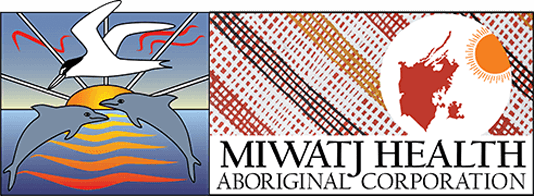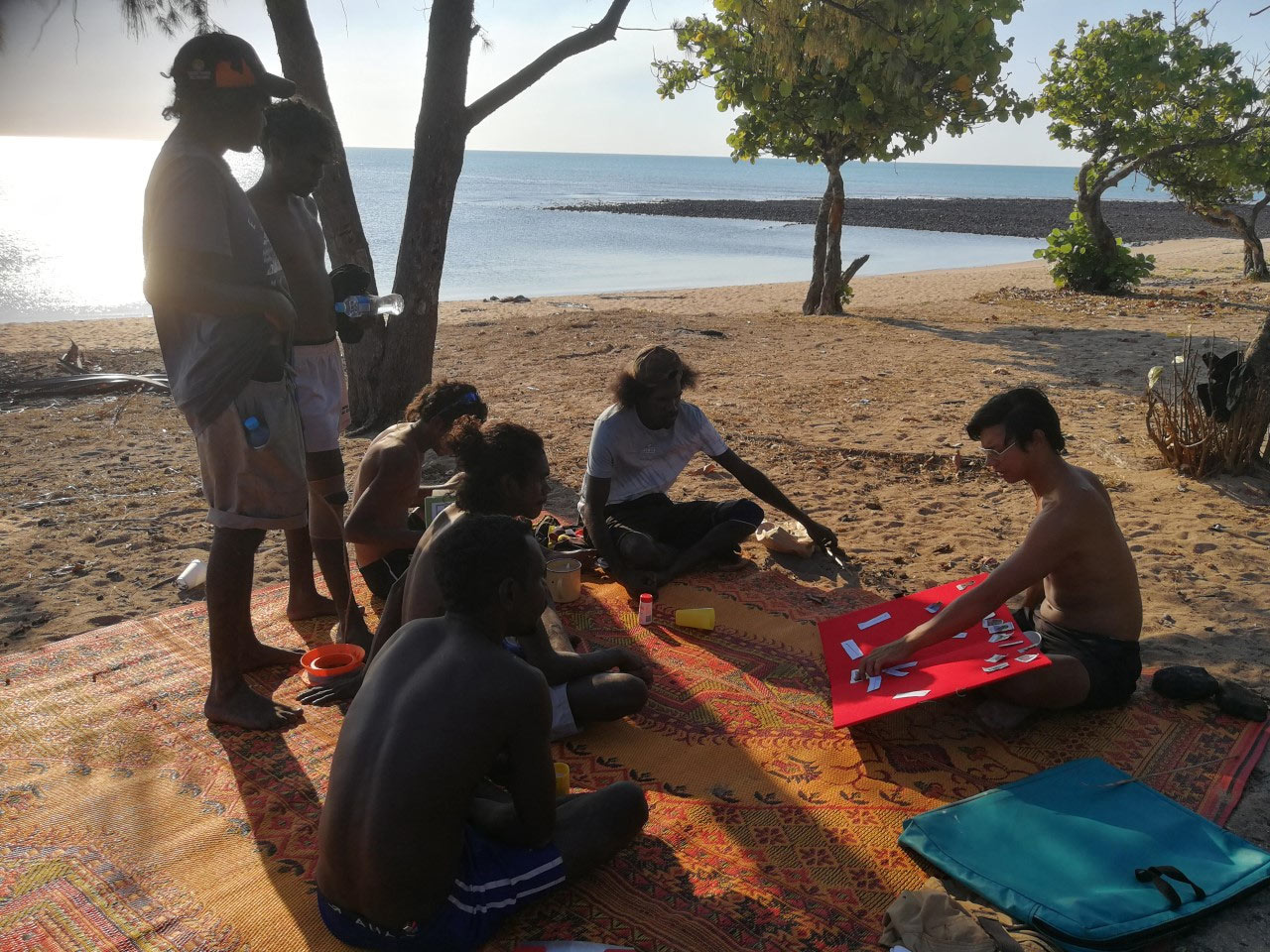Life as an AHP… and a future Registered Nurse
Stuart joined us at Miwatj as an Aboriginal Health Practitioner in the Yirrkala Men’s Health Program at the start of 2018. At Miwatj, AHPs play a vital role. Their knowledge, skills and connection with the community enable us to deliver critical services and improve primary healthcare across East Arnhem Land. Like all our AHPs, Stuart McGrath understands the importance of his role. But he can also see another opportunity ahead.
“It feels good to work as an AHP. I can speak my language and consult with patients in Yolngu tongue. However, I realised I have limited authority when it comes to influencing policies and decision making. That was a big push for me to move to Darwin this year to begin studying Bachelor of Nursing.”
We’re delighted that Stuart made that decision – the development of Yolngu Registered Nurses (RNs) and General Practitioners (GPs) is an important long-term strategy in empowering Yolngu people to own their own health service. When Stuart graduates in two years, he’ll become our first ever Yolngu RN. He has already become an important role model for others and is working hard to gain the skills and experience he needs. In addition to his studies this year, Stuart worked as a casual Research Assistant with the Menzies School of Health Research on a project called ‘Communicate’.
“I was working alongside PhD student looking at communications and developing cultural training for doctors in hospital (RDH). One of the focuses was on analysing cultural barriers in Aboriginal patients and health professionals. The ‘Communicate’ study is going to be published next year and I’ll be one of the co-authors. It’ll be a great reference for me if I ever feel adventurous enough to study a PhD.”
Now, having completed his first year of university, he’s just returned to our Galiwin’ku clinic to resume work as an AHP over the summer and spend time with his daughters.
“For the last two weeks, I’ve been working in the emergency department to refresh my practical skills and to help prepare me for when I go back next year for placement.”
Stuart’s graduation in two years will be a monumental day and a wonderful achievement. But his path has been far from easy.
Growing up in Arnhem Land… and a challenging path to progress
Stuart was born and raised on an out-station in East Arnhem Land known as Mata Mata, a small remote in-land community of 40 people. He attended the only school in the area, where his mother and grandmother taught. The school, “Gatirri School”, is named after his great grandfather.
“I had a semi-nomadic upbringing – living off the land; hunting, fishing and gathering. When I was five years old, my Dad passed away and we decided to move to Mata Mata. Later on, we moved back to Galiwin’ku for schooling. When I was twelve, my mother passed away of lupus. I moved to live with my auntie and uncle. Having both my parents pass away at a young age has made me stronger. Without my past, I wouldn’t be the person I am today.”
During years eight and nine, Stuart moved to Canberra to live with another auntie. To him, Canberra was another world altogether – and a steep learning curve.
“I found out what the word ‘racism’ meant the hard way. I could only speak a few words of English. Going from Galiwin’ku where 98% of students were Yolngu to a school where I was the only Yolngu person was isolating. I was made to feel inferior. There were local Indigenous kids, but I was the only tribal person. I only lasted two years; I was losing connection to my culture at an age where identity was vital. On the positive side, when I came back to Galiwin’ku, I was fluent in English.”
Having lived outside of Arnhem Land, Stuart began to observe the health crisis around him with a new perspective. He soon grew motivated to be part of the solution.
“No matter what disease it was, all healthcare outcomes seemed to be worse in our community. Even today, people are dying in my community at a staggering rate and unnecessarily early. I grew up with this; I thought it was normal to be burying people all the time. But these diseases are preventable; we live in a first world country – that’s why I chose to become an AHP.”
Stuart’s vision… and core motivation
Stuart has a key motivation even closer to home. As a father of two daughters, he wants them to know they have the world at their feet too. Destiny (nine) wants to be a Doctor, and Keshanti (eight), a teacher. When he considers his own future, Stuart dreams of graduating outside our CEO, Eddie Mulholland’s office.
“I want to show my appreciation to Eddie and Miwatj for their encouragement, support and flexibility. They’ve provided essential resources to me such as my laptop and a loan for my accommodation in Darwin. It will be my way of saying thank you.”
Stuart understands the importance not only of what he does, but also what he represents. He takes his contributions extremely seriously and has a clear vision for himself and those around him. It’s clear Stuart’s mission aligns with ours.
Thank you for your time Stuart. We’re so grateful to work with you and can’t wait to follow your journey from here.

